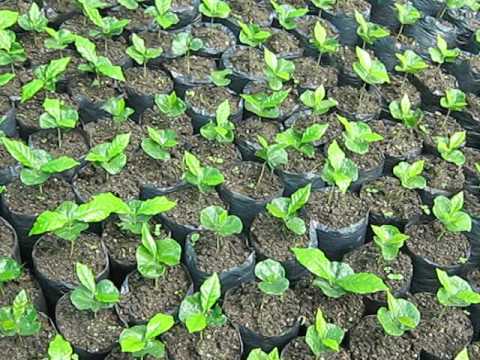SEATTLE, United States – The results of the study, “Comparing the Quality of Nariño Coffees According to Variety,” were released this week during the Specialty Coffee Association of America’s (SCAA) Annual Symposium.
The study has important implications for the specialty coffee industry and for Nariño coffee producers, as it found no significant quality differences related to variety between the Caturra and Castillo coffee varieties when they are grown and processed under similar conditions.
The study was conducted by Catholic Relief Services (CRS) in collaboration with the International Center for Tropical Agriculture (CIAT), the World Coffee Research (WCR) and Songer & Associates.International tasters and specialists, exporting firms, and the Colombian Coffee Growers Federation (FNC) also supported the initiative.
The study implemented rigorous and sophisticated sampling and statistical analysis techniques. Castillo and Caturra samples were collected from the same farms in the department of Nariño, coded in order to conceal their identity, then randomly evaluated by a panel of professional tasters.
As Michael Sheridan from CRS noted, “Some buyers prefer Caturra over Castillo based on beliefs rather than evidence Colombia’s policy of promoting the Castillo variety relies on strong arguments including the quality of the coffee Castillo produces.”
No differences in quality but significant variations in resistance to diseases
The study notes that while both varieties produce high-quality coffee, the Castillo variety is resistant to diseases and yields higher productivity. Developed by the FNC’s National Coffee Research Center (Cenicafé), Castillo is resistant to diseases including coffee leaf rust and thus can better adapt to climate variability.
The Castillo variety has been instrumental in the crop renovation program promoted by the FNC, which renovated a total of 3.25 million trees between 2009 and 2014.
Farms that grow the Castillo variety face lower risks. According to Mr. Sheridan, buyers who demand the Caturra variety exclusively should pay significant premiums. Even so, he adds, it is difficult to establish whether the premiums would outweigh the risks producers face due to pests and diseases.
Study and conclusions
A total of twenty-two pairs of samples were evaluated. In order to detect variations in flavor, each panelist evaluated the samples in two tasting rounds (between October 1-3, 2014 and between January 17-19, 2015).
As mentioned in the study, “The statistical tests indicated that, in general, there was no significant difference in quality between the Caturra and Castillo varieties.”
The study’s findings discredit the false notion that introducing the Castillo variety will potentially condemn coffee growing regions, such as Nariño, to lose their reputation as high quality producers.
The findings confirm that the unique flavor attributes of the coffees for which buyers and roasters are willing to pay premiums are derived from environmental and processing conditions and are not affected by the differences in these two varieties.
As the study acknowledges, it is important to remember that the variety of choice depends upon multiple factors at play in high quality coffee production.
“Each decision must be made based on the specific capabilities and conditions of each particular farm.”










